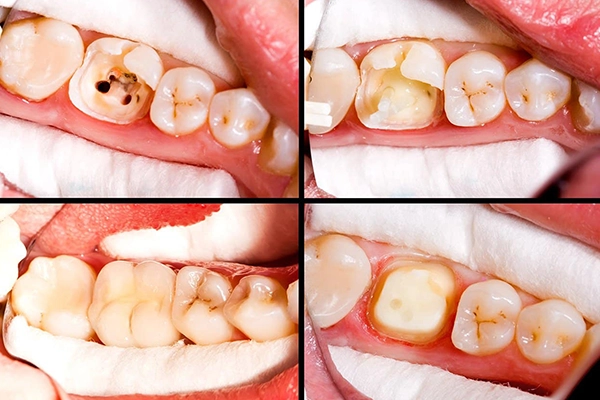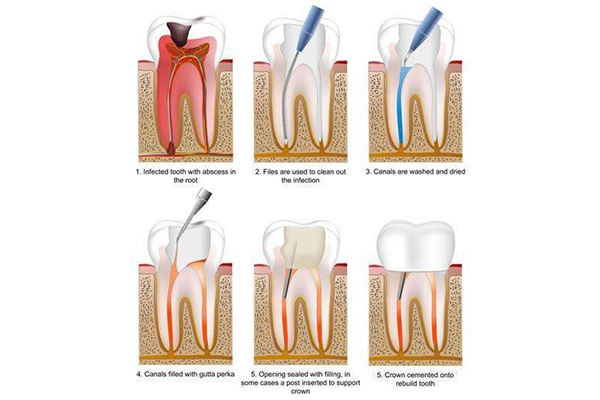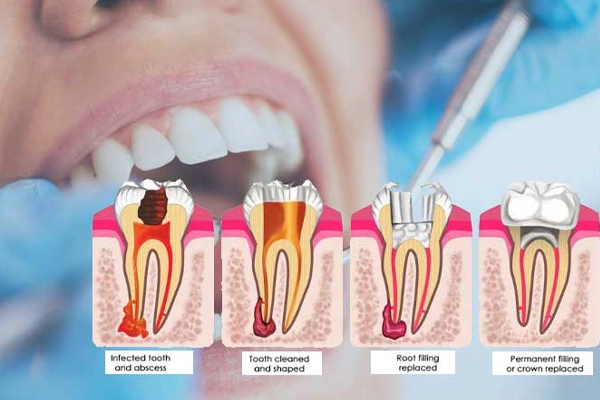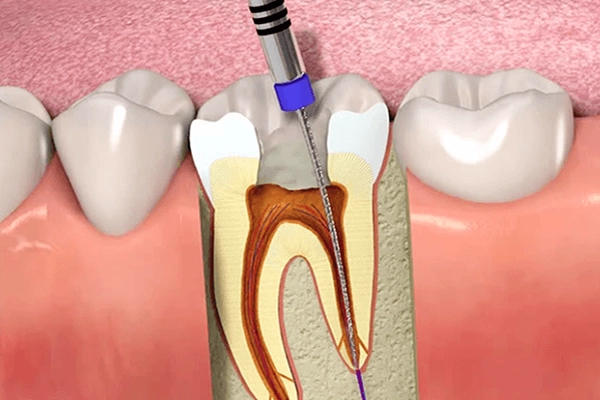What is RCT(Root Canal Treatment)?
If your dentist recommends a root canal treatment to treat a diseased or damaged tooth, you shouldn't be worried. Every year, this kind of dental treatment reduces pain and restores the health of millions of teeth.
Root Canal Treatment (RCT) is a dental procedure used to treat infection or damage within the tooth's pulp-the soft tissue inside the tooth that contains nerves and blood vessels. This treatment is often necessary when the pulp becomes infected or inflamed due to deep decay, repeated dental procedures on the tooth, or a crack or chip in the tooth. The main purpose of RCT is to save the natural tooth and restore the functional aspect as well.
Stages of Root Canal Treatment
1. Diagnosis and X-Ray:
The dentist examines the tooth and takes X-rays to determine the extent of the infection and the size of the gums.
2. Anesthesia:
Local anaesthesia is run to numb the affected tooth and surrounding place to make sure the patient remains snug for the duration of the process.
3. Open access:
The dentist makes an opening in the crown of the tooth to access the infected or inflamed pulp.
4. Cleaning and Shaping:
The dentist uses special tools to remove diseased or damaged teeth in the root canal and gums. The canals are then cleaned, disinfected and conditioned to prepare them for filling.
5. Filling the Canals:
The clean and shaped gutters are filled with an ecologically compatible material called gutta-percha. This material is placed in the canals and sealed with a cement adhesive to ensure complete sealing.
6. Temporary Filling:
A temporary filling is placed on the edge of the tooth until a permanent restoration (such as a crown) can be placed.
7. Post-Treatment Restoration:
After the root canal treatment, the tooth will need a permanent restoration, such as a crown or a permanent filling, to protect it and restore its function. This is crucial because the tooth can become more fragile after the procedure.

FAQ
- Q: Benefits of Root Canal
- Q: How Do You Know If You Need Root Canal?
A:
When people notice that their teeth are sensitive, especially to hot and cold sensations, they usually need a root canal. A few symptoms show that you might need a root canal:
- Intense pain when biting or chewing
- Pimple on the gums
- Extreme sensitivity to hot or cold
- Swollen or sensitive gums
- A chipped or cracked tooth
- Q: Is the Root Canal Painful?
A:
A root canal treatment won't hurt because anaesthesia is administered to the patient. There may be some mild discomfort for a few days following the procedure. The root canal treatment of today is very different from those proverbs! Depending on the condition of your tooth, it can typically be finished in one or two appointments and is quite similar to a standard filling.
- Q: How Long Does a Root Canal Procedure Take?
A:
The time takes for a root canal depends on the complexity of the tooth's structure and the level of infection. One to two hours are typically needed for a root canal treatment. A more precise estimate will be provided by your dentist after assessing your specific condition.

.webp)





